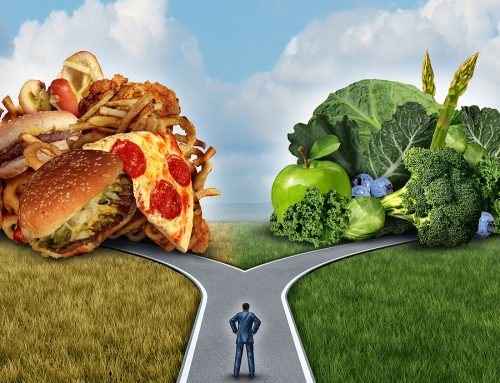The popularity of health and fitness mobile apps has exploded in recent years. My Fitness Pal had 200 million users when it was sold to Under Armour For $345 million in 2020. But do mobile apps work? Surprisingly, there has been little research on whether apps are actually effective for fat loss. Some studies even suggested that apps could have negative effects such as triggering eating-disordered behavior. (This has more recently been refuted).
![]()
Fitness apps may have several functions. That provides a high level of value and service to the user, but for researchers, has made it difficult to know what specifically makes an app help people lose weight.
A recent research review (Ufholz et al 2023) analyzed studies on eight different apps, including MyFitnessPal, Calorie King, FitBit plus five others. The goal was to answer the question about apps and fat loss.
This study gave us some new insights.
One thing all the successful programs and apps have in common is that they help each individual customize their nutrition and fitness plans. Trying to shoehorn someone into a one-size-fits-all program almost always fails. Plans that are not personalized are not sustainable.
But the biggest discovery from this research is that the most successful apps for promoting weight loss encourage people to self-monitor two things:
1. Food intake.
2. Body weight.
Tracking steps consistently has also been found to have many benefits, potentially including weight loss, but the benefits are more related to health than weight loss. (It takes a ton of walking to move the needle on body fat without a change in diet).
Heres’s something important that I want to point out:
Nowhere in this research was it suggested that tracking calories burned from individual exercise sessions contributed to better weight loss. You don’t need to track calories burned from each workout because that calorie expenditure was already included in your initial maintenance level calculations!
Attempting to adjust your food intake based on calories burned per workout is an exercise in futility and more likely than not, will sabotage your fat loss not help it. You should adjust your food intake based on your week to week results (weight and body composition).
Some apps give people the impression that they’re supposed to eat back the calories they burned, but if you do that you are only wiping out the calorie deficit you created from your exercise. Learn more at;
How Tracking Your Exercise Calories Burned Can Sabotage Your Fat Loss
Another finding in the new study was that apps designed to engage their users to use them more often had the best results. This included getting users to track body weight and meals more frequently.
Tracking at least 6 days a week for at least 75% of the weeks correlated with the best results. This shows that perfection is not necessary, but consistent tracking is important for success.
In one study, apps that sent push notifications improved weight loss. They had to be the right types of messages though. For example, users reported they wanted upbeat messages that were also entertaining. They didn’t want messages that made them feel guilty or like failures during difficult times. They also didn’t want to get overloaded with messages. (Because it starts to feel overwhelming or even like spamming).
It’s unclear if using multiple functions offered by an app, such as tracking sleep, stress, mindfulness/meditation, water intake and so on, improves weight loss. However, there’s evidence that these types of additional features may improve health outcomes.
The authors of this 2023 study concluded strongly that apps can help improve weight loss if the user stays engaged and uses the app frequently.
A key point worth repeating is that tracking food intake and body weight appear to have the strongest positive effect. This was found over and over in multiple studies.
Let me wrap up with a personal observation:
Apps are clearly effective when used regularly, but users and clients should be informed by their coaches and clinicians that it’s not mandatory to track your diet forever. Many top coaches today (including myself) teach how to manage bodyweight without continued tracking of calories and macros. Strategies for doing this include habit-based-eating, mindful eating, and hunger-fullness tracking.
Understanding this can take pressure off people who may not want to count calories and macros indefinitely. On the other hand, individuals can choose to continue tracking as long as they find it helpful. Members at the Burn the Fat Inner Circle have told me they have 1000+ day tracking streaks and say it feels second nature at this point.
Here’s my best advice:
If you want to lose fat but you’re currently not making progress, or if you lost fat but it’s starting to creep back on, and if you’re not already using a food and bodyweight tracking app, then start using one.
Alternately, create macro-based meal plans and follow them, including measuring or weighing most of your food. (Learn more about meal planning for fat loss here)
I see people search for all kinds of fancy (or weird) fat loss plateau-breaking strategies, but here’s something to remember:
The best fat loss plateau breaking strategy is tracking your food intake. You can do that with an app. (Or with proactive macro-based meal planning).
Also, two of the best ways to maintain fat loss are to track your body weight frequently and keep your daily step count up. You can do that with an app too.
Train hard and expect success!
Tom Venuto, Author of Burn the Fat, Feed the Muscle Guide To Flexible Meal Planning
Founder and CEO, Burn the Fat Inner Circle,
The support community for all-natural no-BS body transformation
PS. Related Content (Burn The Fat Members-Only Area):
Full research review on the new 2023 mobile app study:
==> Do Mobile Apps Really Work For Fat Loss Long Term? A Scientific Review <==
Research Explaining Why Diet Apps Don’t Cause Eating Disorders:
==> Using Diet Apps Has No Negative Effects On Mental Health Or Eating Disorders <==
The Hunger-Fullness Scale (A Mindfulness Technique To Manage Your Weight Without Counting Calories):
==> www.burnthefatinnercircle.com/members/Hunger-fullness-scale.cfm <==
Habit-Based Eating: Another Technique To Manage Your Weight Without Diet Tracking:
==> The Burn the Fat, Feed the Muscle Guide To Habit-Based Eating <==
PPS. Not an Inner Circle member yet? See the list of member benefits and join us. Visit the link below for details:
==> BurnTheFatInnerCircle.com/member-details <==
Tom Venuto is a natural bodybuilding and fat loss expert. He is also a recipe creator specializing in fat-burning, muscle-building cooking. Tom is a former competitive bodybuilder and today works as a full-time fitness coach, writer, blogger, and author. In his spare time, he is an avid outdoor enthusiast and backpacker. His book, Burn The Fat, Feed The Muscle is an international bestseller, first as an ebook and now as a hardcover and audiobook. The Body Fat Solution, Tom’s book about emotional eating and long-term weight maintenance, was an Oprah Magazine and Men’s Fitness Magazine pick. Tom is also the founder of Burn The Fat Inner Circle – a fitness support community with over 52,000 members worldwide since 2006. Click here for membership details
Scientific references:
Ufholz K et al, The Efficacy of Mobile Applications for Weight Loss, Cure Cardiovasc Risk Rep,17(4):83-90, 2023.







Leave A Comment